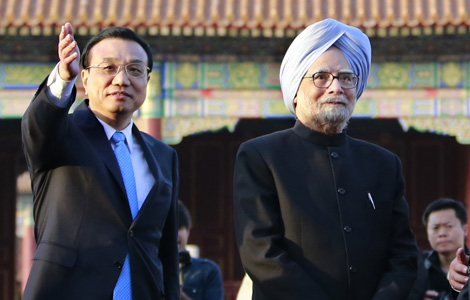

Senior officials from Hong Kong said that Beijing and Hong Kong should cooperate to promote the involvement of private capital in the financial industry.
"Beijing and Hong Kong have many complementary qualities in the finance sector," said Secretary for Hong Kong Financial Services and the Treasury Bureau Chan Ka-keung, at the 17th Beijing-Hong Kong Economic Cooperation Symposium.
"Beijing as a base for venture capital has plenty of innovative technology enterprises that have a strong demand for funds, and Hong Kong is the center in Asia for venture investors.
"The private fund business will be an important means of financial cooperation between the two cities."
He added that Hong Kong is studying an arrangement that will offer a tax exemption for offshore funds to private investment firms.
"Mainland enterprises in Beijing can utilize the Hong Kong offshore yuan-denominated financing system to raise funds and hedge their financial risks," he said.
Experts said that private firms can also get a high return on investments in companies that conduct initial public offerings.
As of last month, there were 109 mainland companies listed on the Hong Kong Stock Exchange. They've so far raised about HK$413 billion ($53 billion), and their aggregate market capitalization is HK$872.3 billion.
Beijing and Hong Kong are holding discussion on the mutual recognition of retail funds in both cities.
That arrangement will make it easier for mutual fund managers to raise capital in the mainland market. It would also further encourage the development of Hong Kong as an international asset management center and a major gateway to global markets for investors from the mainland.
The financial sector has become a core industry in Beijing.
"Beijing's financial industry including its equity, bond and currency markets have expanded significantly in the past few years," said Wang Hong, director of the Beijing Municipal Bureau of Financial Work.
"The closer link with Hong Kong as a financial hub can create a win-win scenario that would allow both cities to provide benefits for financial industry players."
Last year, Beijing's financial sector generated 259.25 billion yuan ($43 billion) in added value, up 14.4 percent on a year-on-year basis, accounting for 14.6 percent of Beijing's GDP, according to data from the city government.
The contribution of the financial industry to economic growth in the capital reached 24.7 percent, ranking first among all industries.
As of the end of 2012, the balance of yuan-denominated loans (excluding discounted bills) to the culture and high-tech industries increased by 20.6 percent and 35.8 percent year-on-year, respectively.
As of the same date, loans to small and medium-sized enterprises were up by 7.5 percent. That growth rate was 5.7 percentage points higher than the increase for large companies, city government data show.







